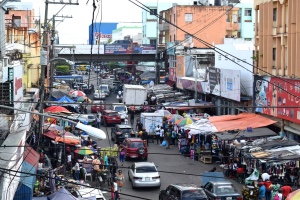
Geneva: Most trade is not paid cash-in-advance. The short-term payment risk involved in international trade is mitigated by a credit, guarantee or credit insurance, present in up to 80% of global trade transactions. The sum of these facilities provided by financial and other institutions is known as trade finance.
Trade would not happen without trade finance.Yet, in many developing countries, increased trade finance costs during the pandemic are adding to the already high cost of physically moving critical goods and commodities across borders. Trade costs in Africa, for example, can be as high as 300 percent of the value of the merchandise being traded. Meanwhile, the cost of trade finance, for example confirmed letters of credit, has increased during the pandemic and is six to seven times more expensive in Africa than in OECD countries.
Basic trade finance lines are not even available locally in emerging markets, particularly for SMEs. Surveys indicate that over 40 percent of SMEs’ trade finance requests are rejected. This number goes up to 70 percent when the requests emanate from women-owned SMEs. And when trade finance requests are accepted, often the most expensive form of trade finance is proposed —collateralized working capital financing at very high rates. In this context, it is no surprise that global trade finance gaps, mainly in developing countries, have increased during the pandemic, reaching $1.7 trillion.
In order to explore ways to improve the availability of trade financing for regions in need, the World Trade Organization (WTO) Director-General Ngozi Okonjo Iweala and International Finance Corporation (IFC) Managing Director Makhtar Diop agreed to enhance cooperation between the two organizations, today.
In a joint statement, the two pledged to enhance existing cooperation to improve the analytics, identification and detection of trade finance gaps in order to better direct capacity building and other resources where unmet demand is greatest, particularly in Africa.
“Our developing country members regularly identify a lack of trade finance as a major obstacle to participating in global trade – all the more so for micro, small and medium-sized enterprises, and businesses led by women,” DG Okonjo-Iweala said. “Working together, experts from our two organizations will be able to better analyse, detect and explain trade finance gaps, with a view to directing finite resources where they are needed the most. I believe that a significant share of trade finance gaps results from knowledge gaps.”
In their joint statement, the WTO and the IFC heads agreed to work with small traders and financial institutions at the local level to better understand the ecosystem of trade finance. They also pledged to improve access to trade finance training programmes in emerging markets, mainly in Africa.
They agreed to strengthen the ability of local financial institutions to meet compliance challenges and to facilitate knowledge and awareness for exporters and importers of trade finance support available from development financial institutions. In addition to the IFC, examples of such institutions include the Asian Development Bank, the African Development Bank, the Inter-American Development Bank and the European Bank for Reconstruction and Development.
The IFC — a member of the World Bank Group — is the largest global development institution focused on the private sector in emerging markets.
“Trade is the lifeblood of the global economy but without trade finance, there can be no effective trade,” said the IFC’s Managing Director, Makhtar Diop. “By expanding our knowledge of trade finance gaps and bolstering traders’ capacity, IFC and the WTO can help small enterprises in developing countries integrate into the global economy,” he added.
– global bihari bureau





